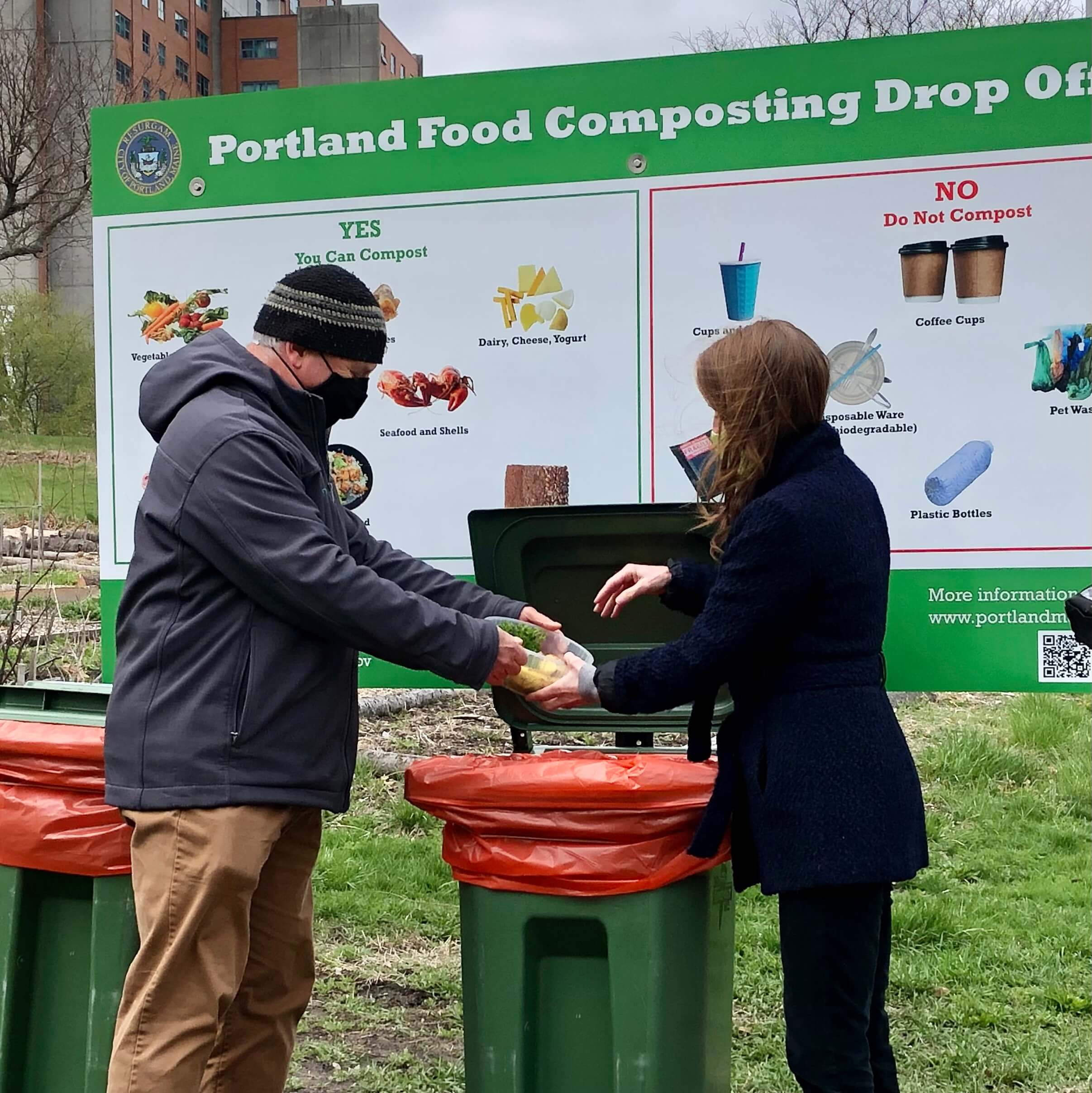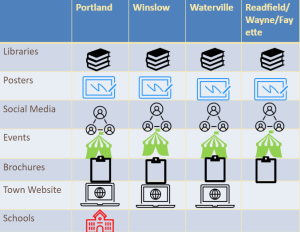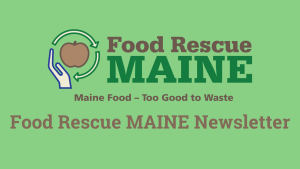
Pilot 2: Community Food Waste Education
Goals
- To educate and engage Maine communities in the common goal of improving their community food systems.
- To prevent, recover, and recycle food waste.
Methodology
- In order to best create educational materials for a community, we must first understand what their goals are. To do this, a meeting is set up to discuss their goals and options via Zoom or in person.
- We share with the community what all of the possible options are. There are many possible avenues for education that we can work with a community on.
- We decide on a course of action together and begin developing ideas.
- Often, we begin by using the educational material templates that we already have. The community will suggest how to best customize them to fit their needs.
- We collaborate closely through every step of the education process until the community is satisfied with their efforts and have the tools to be self-sufficient.
- Food Rescue MAINE gets valuable data to improve how we work with communities in the future.
Results
Our four pilot communities have made amazing progress and are dedicated to educating their residents through many modes!

We would love every Maine town/city to use all of these educational components. The chart above shows all of the work our pilot communities are already doing!
Resources
- Community Upstart Guide
- Community Posters
- Community Education and Awareness Postings
- Informational Brochures
- Food Waste Reduction Tip Sheet
Pilot 3 Challenge Spotlights
By working in collaboration with partners from each of our pilot communities, we have been able to develop educational materials to teach Maine communities about food waste and food recycling. Click on each of the images below to see what we have learned from working with each of these amazing and dedicated communities.
- Readfield, Fayette, Waye (Coming Soon!)
- Portland: Dedicated Individuals Amplify Our Efforts
- Waterville: Students Engage Communities
- Winslow: Navigating Successful Social Media

